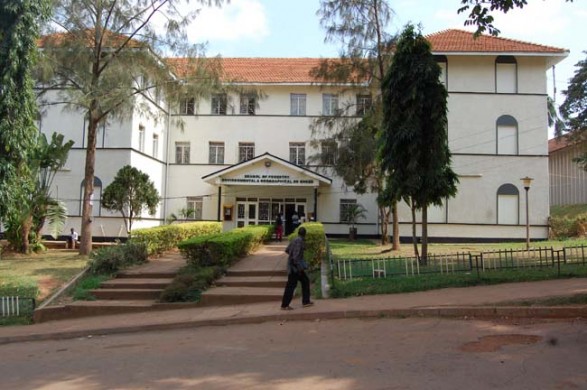Applications are therefore invited from qualified individuals for the award of PhD Scholarship in the following areas of study:
TOPIC
PhD Economic and value chain for fruits and vegetables
PhD Renewable Energy in Food Processing
PhD Research Topic1: PHL Hot Spot Identification in Supply Chains
Objectives
- Assess and document PHL (post-harvest losses) along the supply chain and identify missing information and integration among supply chain actors.
- Identifying PHL hot spots for each supply chain and assess factors driving the losses.
- Develop alternative solutions for supply chain design and supply chain integration that allow the reduction of PHL for at least two cases (milk and vegetables or meat).
- Assess alternative supply chain designs based on key performance indicators aiming at food security, but taking technological feasibility and long term viability
into account.
Eligibility:
The PhD scholarship is open to only candidates with a minimum qualification of a masters degree in the following disciplines; Economics, Agribusiness and any other
related fields from a recognized institution.
PhD Research Topic 2: Renewable Energy in Food Processing
This candidate will investigate the following issues.
- Solar energy technology for low and medium temperature applications during food processing
- Biogas application for food processing
- IT simulation tool for energy supply concepts in food processing
Eligibility:
The PhD scholarship program is open to Ugandan candidates with a minimum qualification of a master’s degree in the following disciplines; Electro and Mechanical
Engineering, Agricultural Engineering, Renewable energy and any other related fields from a recognized institution.
Application instructions:
Applicants must submit a one page concept about the topic of interest, an application Letter, Two Recommendation Letters, and Curriculum Vitae to:
Dr. Susan Balaba Tumwebaze.
School of Forestry, Environmental & Geographical Sciences, Room 201
Email:tumwebaze@caes.mak.ac.ug
Deadline:
Application deadline for the scholarship for the master’s programs is 19th September 2014.


 General2 weeks ago
General2 weeks ago
 Natural Sciences2 weeks ago
Natural Sciences2 weeks ago
 Agriculture & Environment1 week ago
Agriculture & Environment1 week ago
 Health2 weeks ago
Health2 weeks ago
 General5 days ago
General5 days ago


